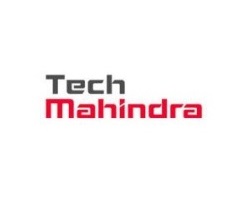“Organizations that prioritize innovation in their daily operations are aware that IoT has the potential to address their most pressing issues” – Dr Rishi Bhatnagar, President, Aeris Communications
-
 Emphasize the importance of IoT in fleet management.
Emphasize the importance of IoT in fleet management.
It often becomes challenging for fleet operators to achieve business objectives under reduced costs while being able to meet compliance needs in the increasingly stricter environment of safety and environmental regulations. For the fleet operators to run business profitably, it is not only imperative, but a tough task to bring a balance between varied factors like fuel consumption, driver performance, vehicle maintenance, and route management. Thanks to the Internet of Things (IoT)technology that helps connect applications for delivering services and data. Its use in the fleet industry has brought a drastic change in its operability by making fleets smarter and more efficient. IoT-based sensors help to track the locations and condition of fleets in real-time and analyse other fleet factors, such as the vehicle’s speed, movement, and braking system among other parameters. It helps in remote monitoring and analysis of the engine’s essential parameters, diagnostics fault codes and in-vehicle data acquisitions. Moreover, vehicles equipped with sensors can send automated signals and alerts when any part of the car needs maintenance or is close to failure. With the adoption of IoT-enabled solutions, today fleet managers and other stakeholders have a better view of their fleets as they can view them on a single dashboard on their mobile or desktops/ laptops. They are more confidently managing their fleet operations with the adoption of technology-driven solution that moves them forward. Aeris has also developed and launched the AerTrak platform that provides small fleet owners with tracking and monitoring abilities for their fleet, analytics to improve performance, utilization, safety, security and much more.
- What are the advantages of using telematics for fleet owners?
Telematics systems provide fleet operators with critical insight into their vehicles and drivers,24×7, anytime, anywhere. The data obtained from telematics allows fleet managers to develop more efficient routes, maintenance schedules, take quick action in case of non-compliance or emergency situations. The fleet managers today are benefitted hugely from this essential management tool like:
- Raises productivity and efficiency: GPS tracking is used by telematics to track a vehicle’s whereabouts in real-time. The data it gathers can be used to design safer and more effective driving routes, which can shorten delivery times and enhance customer experience.
- Reduces operation cost:Telematics can help you create smarter route plans that can save on fuel costs. For instance, you can use the software to track and reduce vehicle idling. You can readily identify who must improve in this area by comparing the idle time of various drivers and vehicles. The biggest price for a fleet is gasoline, which may be further reduced by cutting down on idle time.
- Ensures safety:IoT is an effective solution to curb the continually increasing cases of motor vehicle accidents and deaths. With this technology, you can access the real-time GPS location of the fleet and incorporate fleet tracking software to monitor the driver’s behaviour on the road and ensure safety compliance, thus reducing the risk of crashes. IoT telematics also helps in collecting essential data like harsh acceleration and speed limit and, in return, keeps drivers on the right track. In case of an accident, the hardware sends you an alert immediately, indicating that there has been a collision that calls for immediate action.
- Asset Safety:Telematics with certain advanced features can also prevent vehicles for getting stolen. Fleet managers can put a geo-fence around the assigned routes of their fleet, and in case any vehicle goes without sanction, on an unassigned route, it can be remotely immobilised and recovered.
- What do you think about the security and privacy dangers connected to connection solutions, as well as the complexity of integrating cyber threats across diverse systems?
Organizations that prioritize innovation in their daily operations are aware that IoT has the potential to address their most pressing issues. The same is true for fleet managers, who rely on technology to maximize their business outcomes. Threats to cyber security are real, and top IoT players are always implementing new security measures to stay ahead of the problem. The “Secure first” paradigm, which
places security at the centre of any implementation built with a roadmap to adapt to ongoing danger, is the foundation of good and dependable IoT technology.
- In view of the growing number of fleets using dashcams and video telematics to protect themselves and their drivers, how is Aeris aiding customers with huge data?
We put a lot of time and energy into developing a high-data solution that is specifically tailored to the needs of providers of video telematics services. Aeris High Data is unique among dashcam-compatible high-data SIMs as it provides high-quality data at a reasonable cost. This is particularly important because fleets are rapidly implementing dashcam systems to maximize cost savings, enhance fleet management, and halt bogus insurance claims. To support this, high-data SIM cards are required. Additionally, they are essential to improve security, follow laws, stop theft, and lower auto insurance prices. For instance, the vast majority of our dashcam users consume 100–200 times more data than those who use conventional telematics. In order to attract companies that operate internationally and need the most detailed insights, telematics service providers can choose our high-data solution.


